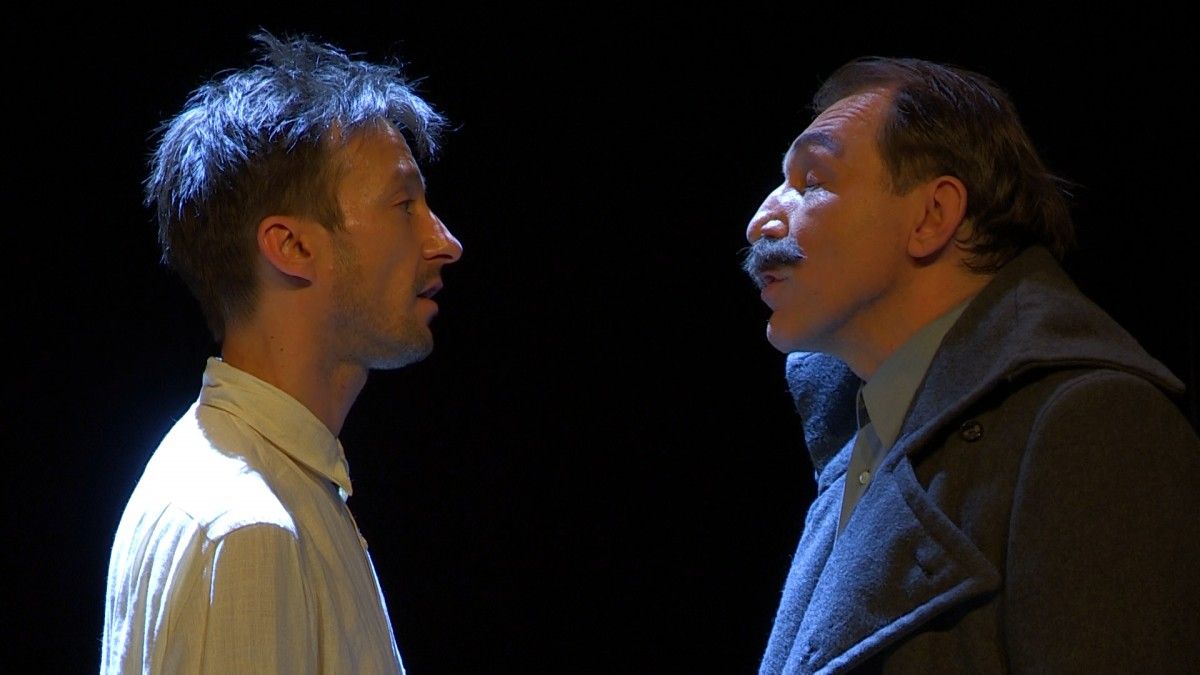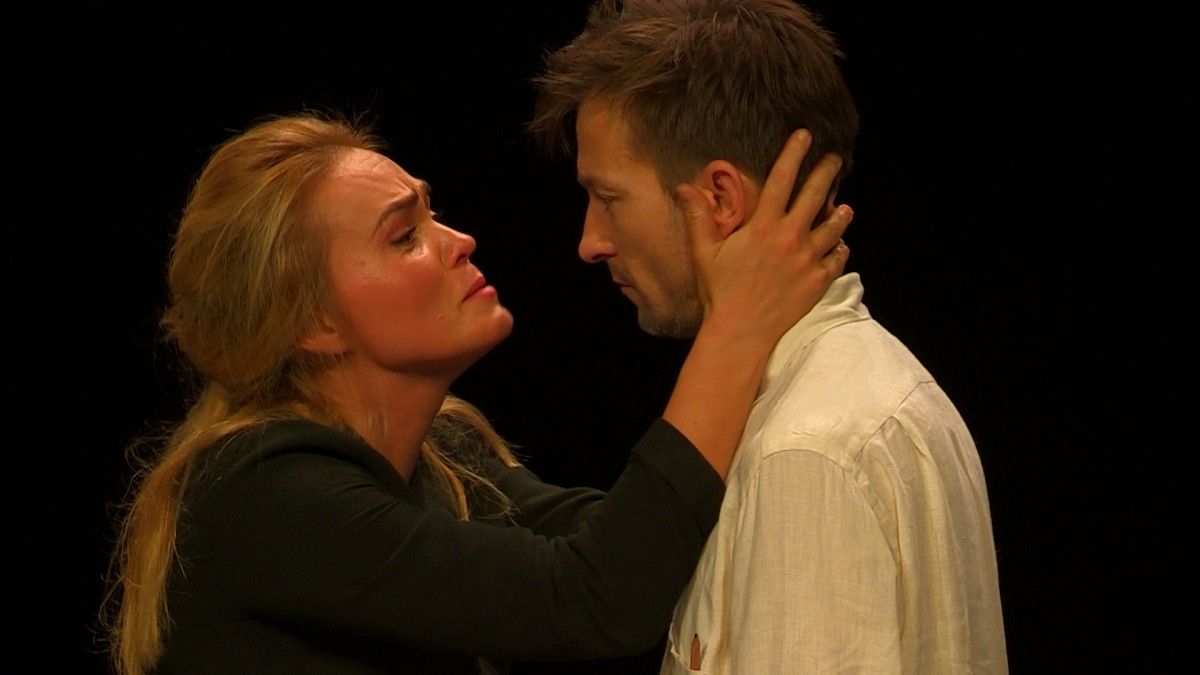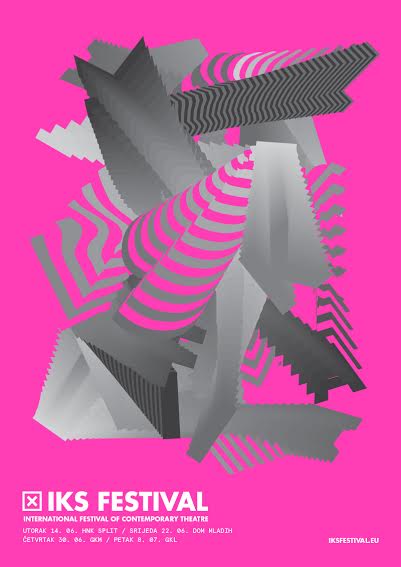Artist Collective Igralke from Rijeka Invited to International Theatre Festival in Berlin
March 3rd, 2022 - The documentary performance Bakice (Grannies) is based on testimonies of poor elderly women from Rijeka who survive by collecting discarded plastic bottles
Written and performed by Kolektiv Igralke from Rijeka, the documentary performance Bakice (Grannies) has been winning the hearts of audiences all over Croatia ever since it premiered as part of the programme Rijeka 2020 - European Capital of Culture. The play is now beginning to conquer the international theatre scene, reports Novi list.
Following the international festival of contemporary performing arts Mladi Levi in Ljubljana, the Zoom Festival in Rijeka and the Ulysses Theatre, the play is now heading to the prestigious Theatertreffen Festival in Berlin.
Out of 357 applications from 61 countries, the expert jury selected only five projects to be included in the programme of the Theatertreffen-Stückemarkt Festival in Berlin. Among them is the play Bakice, a project of the artist collective Igralke from Rijeka.
Authors and actors Sendi Bakotić, Ana Marija Brđanović, Anja Sabol and Vanda Velagić will perform their play in Berlin in May 2022, accompanied by the Bakice director and co-author Tjaša Črnigoj from Slovenia.
The Theatertreffen Festival is one of the most renowned European theatre festivals, which historically featured great names such as Pine Bausch, Samuel Beckett, Rainer Werner Fassbinder, Heiner Müller, Thomas Ostermeier and many others.
Theatertreffen-Stückemarkt is a platform that presents new progressive authors and projects from all over the world. Kolektiv Igralke and Tjaša Črnigoj were invited to stay in Berlin for two weeks and participate in various workshops and networking programmes with foreign artists and producers. They’re also in the running to win a production of a new project at the Schauspiel Leipzig theatre in the 2023/2024 season.
The play Bakice which got the authors invited to the Berlin festival redefines the classical boundaries of theatre and art. It was written based on testimonies of poor elderly women from Rijeka who survive by collecting discarded plastic bottles.
Touching and unexpectedly entertaining, the play speaks about work, dignity, youth and old age, survival and life of women over the age of 65. In a time where it’s become ‘normal’ to dig through garbage bins, Bakice are questioning where we are and where we’re headed as individuals and as a society.
The play’s impact goes beyond theatre walls, as donations for programme booklets go directly to the four women who shared their personal stories which are featured in the play: Albina, Ludmila, Marta and Suzana.
Theatre in Croatia: Stalin Gets Mail in Zagreb
Just like theatre all over the globe, and especially in smaller countries in which plays are performed in shall we say, a ''small'' language, it must fight for a wider attention. Theatre in Croatia is no different.
Fewer and fewer mainstream media outlets find it adapt to be paying the critics, portals mainly try to cover daily politics, sports and calamities, and arts, in general, appear and disappear, often as surrogates in the days when sensations fail to occur.
Yet, without theatre, without film, without music, painting, sculptures, without poetry... how would we be able to escape reality for an hour or two, what could we connect our reveries to? (not talking about a new house and a big car here!). In theatre, for example, one not only detaches from the reality of his bills and bank statements, one also learns, about many, many things. For instance, the other day we learned that Stalin loved theatre. This historical fact is surprising for everybody’s image of him.
Theatre in Croatia is, despite obstacles, very much alive.
Some public theatres are very old, and are still there and continue producing, and, of course, alongside them there is a multitude of small, private theatre groups, professional or not, and in almost every bigger place.
Having managed a public theatre myself (meaning: major costs covered by the public budget), I've always admired those small private theatre enterprises that have chosen to make things happen and fight for their own, independent existence. And so, thanks to Stalin, we had an occasion to get into a friendly chat with one of those who dare. His name is Marko Torjanac, an actor by education, born and raised in Zagreb. His father was a renowned actor as well, and there's no surprise there. To run a private theatre, however, is quite another story.

''I was somehow never happy with what was going on those big stages. First as an actor, because to be on a payroll in a pubic theatre means not to be able to choose your roles, you have to do what you're told. Also, big theatres are bound to like big productions, the famous authors, so you can see Chekhov, Shakespeare and the likes all over the place. Very important, of course. Yet, theatre has so many messages to convey and therefore it has to be much more mobile, more elastic, much more accessible and possibly, coming to the audience, not vice versa.
So, I founded my ''Planet Art'' Theatre twelve years ago, and, well, we're still sailing,'' smiles Marko.
Does it mean you're only a founder and an actor?
Of course not! At first I had two people on staff to assist in the business side, like ticket sales, publicity and marketing, but as times have become more difficult, I have become all of those, a manager, a ticket sales director, a publicity manager, a stage hand, a technical manager, some kind of essential accountant, and what not. I was learning, and when in dire straits, one learns fast. My working day adds up to 15 or 16 hours sometimes. I'm not complaining, just at times I feel very, very tired.
How do you choose the plays?
I know many people from the world of theatre, many who follow theatre in various countries. They signal on something, either a production they have seen in Moscow, for instance, or they send a script. So I choose by my own feeling, what is there in some text to say to people, is it good enough to make them laugh, does it send a message worth the toil of the whole process, from asking for copyrights, to finding a good translator, to finding a proper cast, a costume designer, to posters and tickets.
We are here right after a truly wonderful production (Love Letters to Stalin) in which, as Stalin, you spend more than an hour under an obviously very heavy Soviet military coat and the moustache. You must be exhausted, but what made you put this text on stage?
Dehydrated, above all, but the applause of the audience is always rejuvenating, nourishing, rewarding enough for us not to feel tired. Love Letters to Stalin, theatre-wise, is a very simple production with only three characters, a desk and two chairs, but it's therefore so much more demanding for us actors. It's based on a true story about the correspondence between Stalin and Mikhail Bulgakov, the author of The Master and Margarita, considered one of the best novels of the entire 20th century, started by Bulgakov when after quite some time of having been banned from public life, he understood that the only possible help could come from Stalin himself.

The text goes deep into the psychology - of a helpless writer who is not allowed to publish or to be staged, of a wife that tries to save both their lives and their mental health, and of a rude dictator, the absolute power that does understand the value of the writer, but needs to be begged for mercy over and over again, of a society of most absolute control over every individual in one of its most merciless forms. Arts must beg for mercy from the authority in every society, so to speak, with helplessness of an artist under a strict regime being the most cruel form of it.

It is obviously very easy for you to travel with this production? Are you planning on any tours?
Yes, of course we are, that's how we make our living mostly. We have three other productions that commute outside of Zagreb as well. And, yes, my personal longtime wish is to show what we do to our people abroad. We also have comedies and can truly make them laugh, too!
Thank you, Marko, and chapeau for the persistence and good, good work!
And as for any of you from abroad that plan on visiting Croatia, do not forget to check what is on in a theatre near you.
Make sure to follow our dedicated lifestyle page for more on theatre in Croatia, and all other aspects of life, culture and the arts.
Hasanbegović in the Council of the Croatian National Theatre
A lot had been happening in the world of theatre in Zagreb at the end of last year.
Shakespeare speaks English again! Meet Filip Krenus
A more in depth look at Shakespeare in Dubrovnik and a meeting with Filip Krenus, the man who will bring him to life in the Pearl of the Adriatic this summer.
Le Petit Festival du Theatre - Another Wonderful Festival in Dubrovnik!
Where will you be from June the 15th til June the 18th, 2017? If the answer to that question is Dubrovnik, then this is not to be missed.
William Shakespeare's ''Macbeth'' at Marin Drzic Theatre
William Shakespeare's timeless ''Macbeth'' to take the stage at Marin Drzic Theatre in Dubrovnik this Sunday.
Summer 2016 Program for IKS Festival is Here
IKS (International Fesitval of Contemporary Theatre) is approaching its 2016 summer edition! IKS Festival presents contemporary theatre through international cooperation in the Mediterranean region. Held every year in Split, IKS displays some of the biggest current hits in the contemporary theaters of European capitals, with special attention to the Mediterranean region. The IKS theatre program is based on highly aesthetic projects from independent groups and interdisciplinary projects which implement new technology and media. With various co-productions with other festivals in Croatia, IKS is a reputable organization, with unmatched value.



